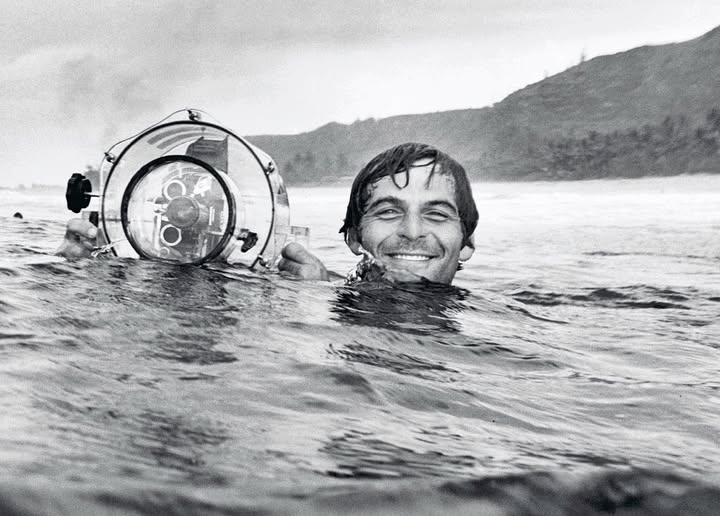Jack McCoy Death and Obituary – Jack McCoy, the pioneering surf filmmaker from Los Angeles, passed away recently at the age of seventy-six. His death marks the end of an era in the surf filmmaking world. McCoy was renowned not just for his technical skill in capturing the essence of surfing, but also for his ability to tell stories that transcended the waves themselves. Just three days before his passing, McCoy had been touring his iconic documentary Blue Horizon around Australia with legendary surfer Dave Rastovich. Despite his declining health in recent years, McCoy remained dedicated to his craft, continuing to tour and share his legacy with new generations of surfers and fans.
Born in Los Angeles, McCoy’s contributions to the world of surf filmmaking and his lasting influence on the sport cannot be overstated. He revolutionized the way surfing was portrayed in media, creating films that were more than just about riding waves. His work elevated the surf film genre to an artistic level, as surf historian Matt Warshaw aptly put it, McCoy’s films “existed on a different artistic plane altogether.”
One of McCoy’s most significant contributions was his partnership with surfer Tom Curren, as well as his relationship with Billabong’s Gordon Merchant. Together, they created the Billabong Challenge series in 1995, a groundbreaking event that put world-class surfers against each other in an intense, one-day format. This format, consisting of two one-hour heats followed by a one-hour final, allowed for a more organic judging system based on consensus, rather than the rigid and often confusing point-based scoring system used by the ASP (now WSL). McCoy was an advocate for simplicity and authenticity in surf competitions. He famously remarked that the general public couldn’t grasp the intricacies of the scoring system, but a well-trained eye could easily discern the winner of a heat. His approach to surf contests was ahead of its time and served as a template that, in hindsight, should have been adopted by mainstream competitions.
In addition to his work in competition filmmaking, McCoy also left his mark with his rebellious surf tours. In 2001, McCoy, alongside surf icon Derek Hynd, organized a “rebel tour” that featured top surfers like Kelly Slater and Andy Irons. However, the tour was stymied by the global economic fallout from the September 11 attacks. McCoy’s vision for this tour was not to overthrow the existing ASP but to explore alternative ways to present surfing as both an art and a sport. His ideas challenged the commercialism that began to dominate competitive surfing, offering a more raw and artistic alternative that valued the soul of surfing above corporate interests.
McCoy’s filmmaking credits include Tubular Swells, Storm Riders, Bunyip Dreaming, Sons of Fun, and, of course, Blue Horizon. The latter, in particular, is regarded as one of the greatest surf films ever made, capturing the spiritual and emotional journey of surfing in a way that few others have been able to do. His work was known for its cinematic beauty, its deep connection to the surf culture, and its exploration of the human spirit.
McCoy’s recent appearance at Sydney’s Randwick Ritz cinema, where he and Rastovich presented Blue Horizon, was a reminder of McCoy’s unparalleled ability to capture the essence of surfing. During the Q&A session, McCoy, ever the philosopher, offered a simple but profound plea to the audience: “Go easy in the lineup, share waves, love your brothers and sisters.” This encapsulated McCoy’s enduring philosophy — surfing was never just a sport to him; it was a way of life that fostered community and mutual respect.
While it is a great loss to the surf world, Jack McCoy’s legacy will undoubtedly live on through his films, his contributions to the surf community, and the countless lives he touched through his work. From Blue Horizon to The Occumentary, McCoy’s impact on surf filmmaking and culture will never be forgotten. He was truly the king of his craft.




